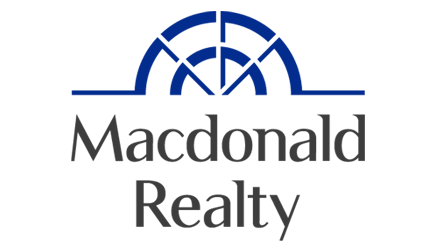
Understanding The Basics Of Commercial Real Estate Negotiation
Understanding the basics of commercial real estate negotiation is crucial for anyone looking to secure the best deal. This process begins with a thorough market analysis, identifying comparable properties and understanding current trends. Knowledge of the local market conditions enables buyers to gauge the property’s true value, setting a solid foundation for negotiation. It’s essential to approach negotiations with clear objectives, prioritizing must-have features and identifying areas where compromises can be made.
Effective communication skills play a pivotal role; being able to articulate your requirements while listening to the seller’s perspective fosters mutual respect and paves the way for a beneficial agreement. Additionally, understanding legal and financial terms involved in commercial real estate transactions is vital, ensuring that all aspects of the deal are clear and fair. With these basics in mind, buyers can navigate negotiations confidently, aiming for an advantageous outcome.
Research And Due Diligence: The Foundation Of A Good Deal
Negotiating the best deal in commercial real estate hinges on a robust foundation of research and due diligence. This critical phase lays the groundwork for identifying opportunities and understanding the intricacies of each potential investment. It involves a comprehensive examination of the property’s physical condition, zoning laws, market trends, and financial projections. Investors should scrutinize leases, assess tenant stability, and evaluate environmental reports to uncover any hidden liabilities or restrictions that could impact the property’s value or future use.
Furthermore, understanding local economic conditions and forecasting potential shifts in demand can provide leverage during negotiations. By meticulously gathering and analyzing this information, investors position themselves to negotiate from a place of strength, ensuring they are equipped to secure terms that align with their strategic goals and maximize their investment returns.
Establishing Your Objectives And Priorities
Establishing your objectives and priorities is a foundational step in negotiating the best deal when buying commercial real estate. This process involves a deep dive into understanding what you ultimately want to achieve with your investment. Whether it’s securing a prime location for retail operations, acquiring property with high rental yield potential, or finding a space that aligns with long-term business growth strategies, clearly defining these goals is crucial.
Additionally, priorities must be set regarding budget constraints, desired property features, and timelines for purchase completion. This clarity not only guides your search but also empowers you to make decisions confidently during negotiations. By having a firm grasp on what matters most to you and your business, you position yourself to navigate the complexities of commercial real estate transactions more effectively.
Strategies For Effective Communication And Relationship Building With Sellers
In navigating the complex process of purchasing commercial real estate, the art of negotiation transcends mere price haggling. It’s about forging a connection with sellers, where effective communication and relationship building become paramount. Establishing rapport is the first step towards understanding each other’s goals and constraints. This involves active listening, showing genuine interest in their perspectives, and demonstrating respect for their priorities.
Sharing your objectives transparently can foster trust, making it easier to find common ground. Additionally, maintaining professionalism and courtesy throughout discussions helps in creating a positive negotiation environment. Employing empathy by acknowledging their needs alongside yours can lead to more collaborative solutions. Remember, successful negotiations hinge not just on the outcome but on cultivating relationships that could benefit future dealings or provide referrals within the industry.
Mastering The Art Of Making An Offer And Counteroffers
Mastering the art of making an offer and counteroffers is pivotal in negotiating the best deal when buying commercial real estate. This intricate dance begins with a thorough understanding of the market, enabling you to present an initial offer that is both competitive and realistic. It’s essential to anchor your offer based on solid data, such as recent sales of similar properties, current market trends, and the unique attributes of the property in question.
As negotiations progress, effective counteroffers require a blend of flexibility and firmness. Demonstrating a willingness to compromise on certain terms while standing firm on your deal-breakers can facilitate a constructive dialogue. Moreover, incorporating creative solutions into your counteroffers, such as adjusting the closing timeline or offering a larger deposit, can help bridge gaps and foster mutual agreement. Throughout this process, clear communication and maintaining a professional demeanor are crucial for successfully navigating towards an advantageous deal.
Navigating Financing Options For Commercial Real Estate Purchases
Navigating financing options for commercial real estate purchases can be a labyrinthine process, but understanding your choices is crucial to securing the best deal. Traditional bank loans often offer favorable interest rates and terms, yet they come with stringent qualification criteria and may require substantial down payments. Alternatively, Small Business Administration (SBA) loans are designed to support small business owners in real estate acquisitions, offering lower down payments and extended repayment terms.
For those seeking flexibility, seller financing can provide a direct negotiation avenue with the seller, potentially leading to more favorable terms or creative financing solutions. Meanwhile, commercial mortgage-backed securities (CMBS) loans offer another route, albeit with non-recourse debt but stricter property requirements. Each option carries its advantages and considerations; thus, aligning your choice with your investment strategy and financial standing is paramount for a successful commercial real estate acquisition.
Closing The Deal: Final Steps And Considerations In Commercial Real Estate Acquisition
Closing the deal on a commercial real estate acquisition is a pivotal moment that calls for meticulous attention to detail and strategic negotiation. Final steps involve careful review and adjustment of the terms initially agreed upon, ensuring they align with both parties’ expectations. It’s paramount to engage experienced legal counsel to scrutinize all contractual documents, identifying any potential loopholes or clauses that could be detrimental in the long run.
Considerations such as closing costs, which often include taxes, attorney fees, and brokerage commissions, must be transparently discussed and negotiated to avoid unexpected financial burdens. Moreover, securing financing terms that favor your investment strategy is crucial for long-term profitability. Ultimately, successful closure hinges on clear communication, thorough due diligence, and the ability to adapt negotiations based on evolving insights right up until the final agreement is signed.

